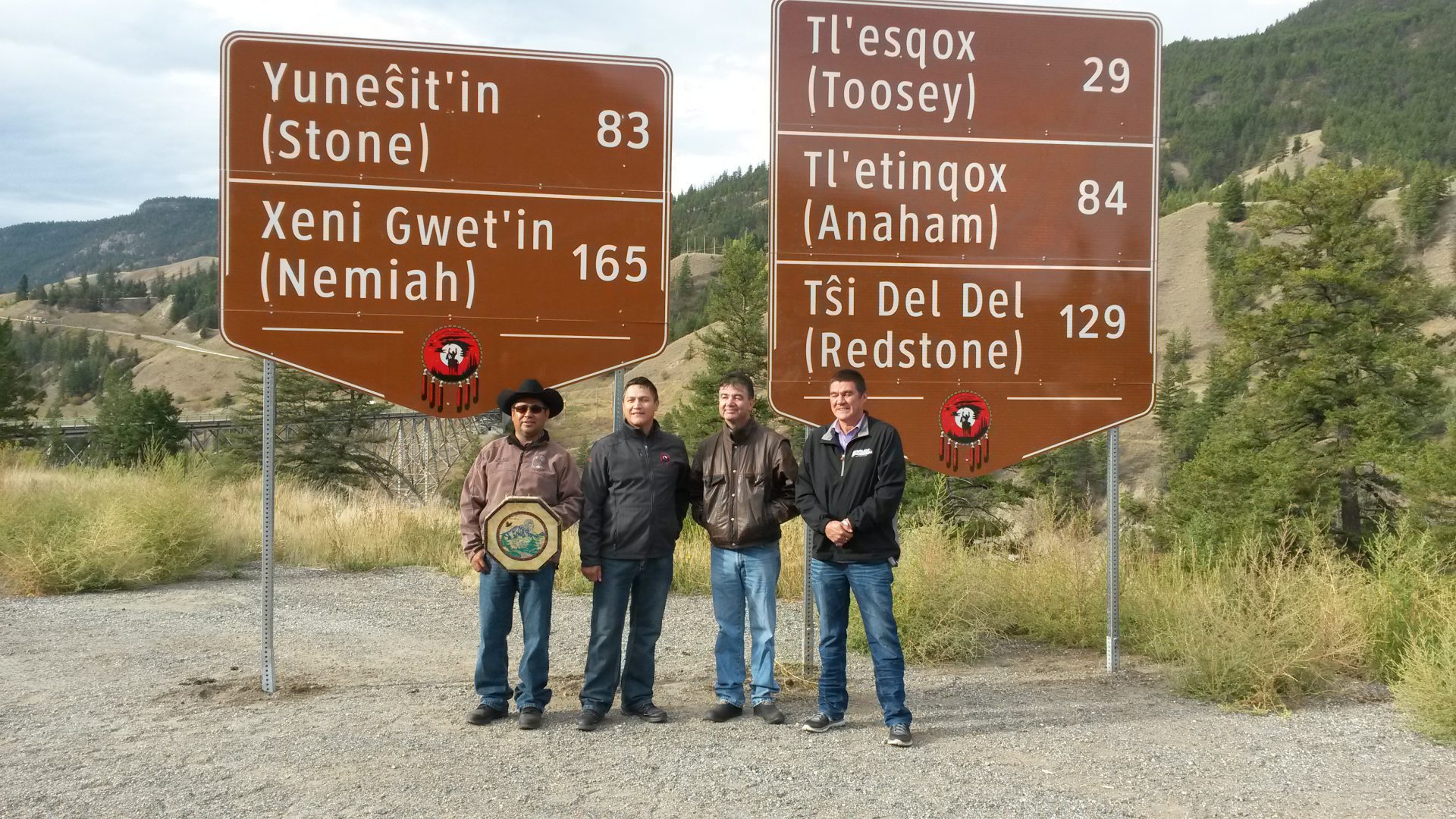Tsilhqot’in communities that have been long referred to by their non-Tsilhqhot’in names will now correctly appear on provincial government resources, maps, and databases.
The Province and the Tsilhqot’in National Government announced Friday that through the Nenqay Deni Accord six community names within the Tsilhqot’in Nation have been adopted as official names within B.C.
“We haven’t been getting as much as we want in that process because we’ve also been focusing with Canada. So the little time that we’ve spent, I think that we’ve made a lot progress with the Province of British Columbia,” says Tribal Chairman Chief Joe Alphonse.
“Now that we’ve got our exoneration date done we’re still going to continue to try to work out a reconciliation type deal with Canada, but hopefully we can also get back to the B.C table and start addressing a lot of the issues that need to be addressed.”
Alphonse says although having their communities recognized under their traditional Tsilhqot’in names might seem like a small step, it is a significant one and that hopefully there will be many more stories like this to roll out going into the future.
“Down the road, we definitely want to see the renaming of some of our other traditional place names, but it’s one step at a time,” he says.
The Nenqay Deni Accord was signed February 11, 2016, as a framework to government to government negotiations between the Tsilhqot’in Nation and Province of BC.
The communities referred by their non-Tsilhqot’in names within Provincial and Federal documents will now be correctly recognized as:
- Tl’esqox – also known as Toosey
- ?Esdilagh – also known as Alexandria
- Yunes^it’in – also known as Stone
- Tl’etinqox – also known as Anaham
- Ts^i Deldel – also known as Redstone and Alexis Creek Indian Band
- Xeni Gwet’in – also known as Nemiah Valley
“The Truth and Reconciliation Commission’s Calls to Action highlights the importance of language and culture in our joint efforts to advance reconciliation.”
“It is a vital part of connecting people to their heritage and the lands they come from and the formal recognition of the Tsilhqot’in communities’ proper names is a powerful statement of this important work in action.”
Something going on in the Cariboo you think people should know about?
Send us a news tip by emailing [email protected].








